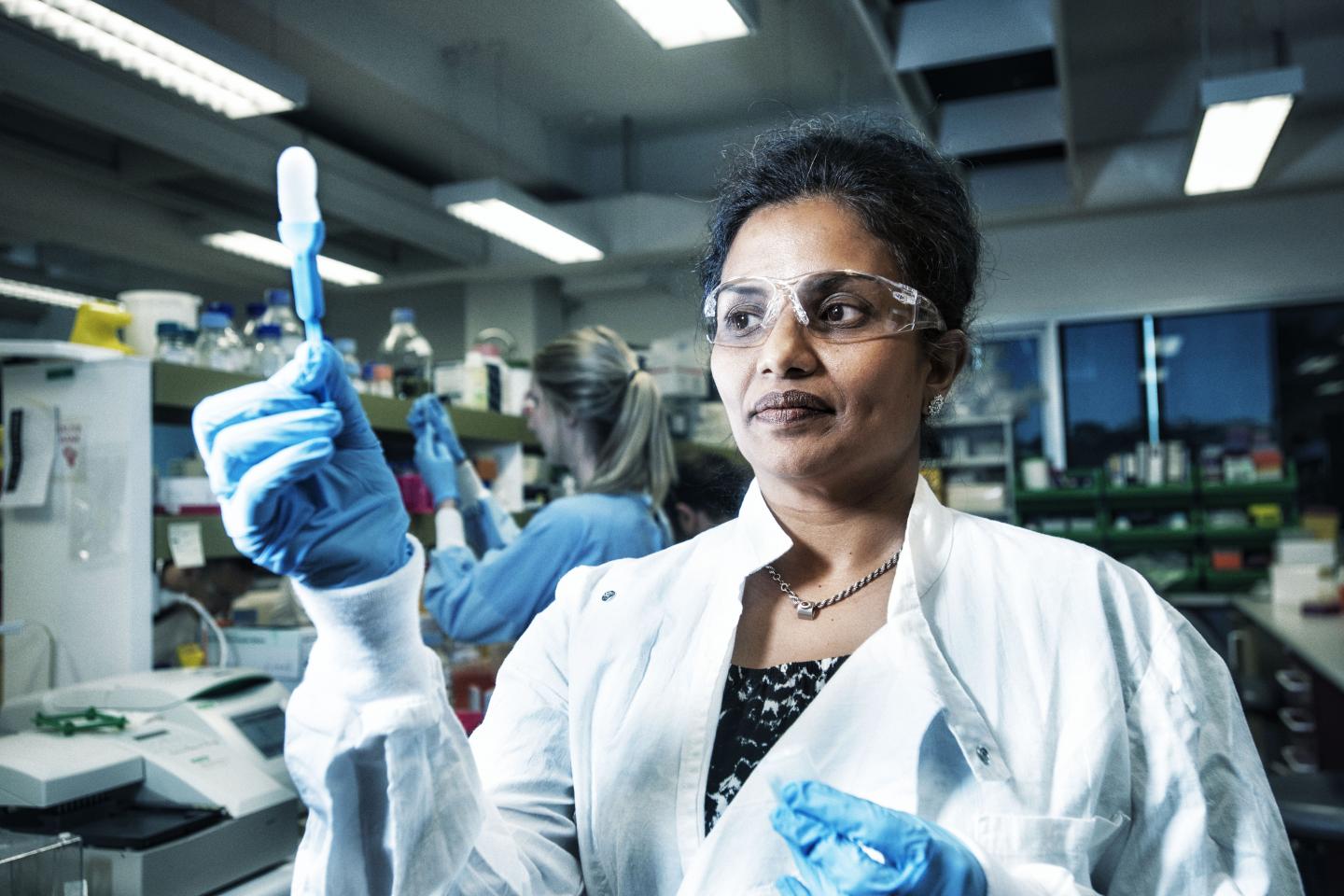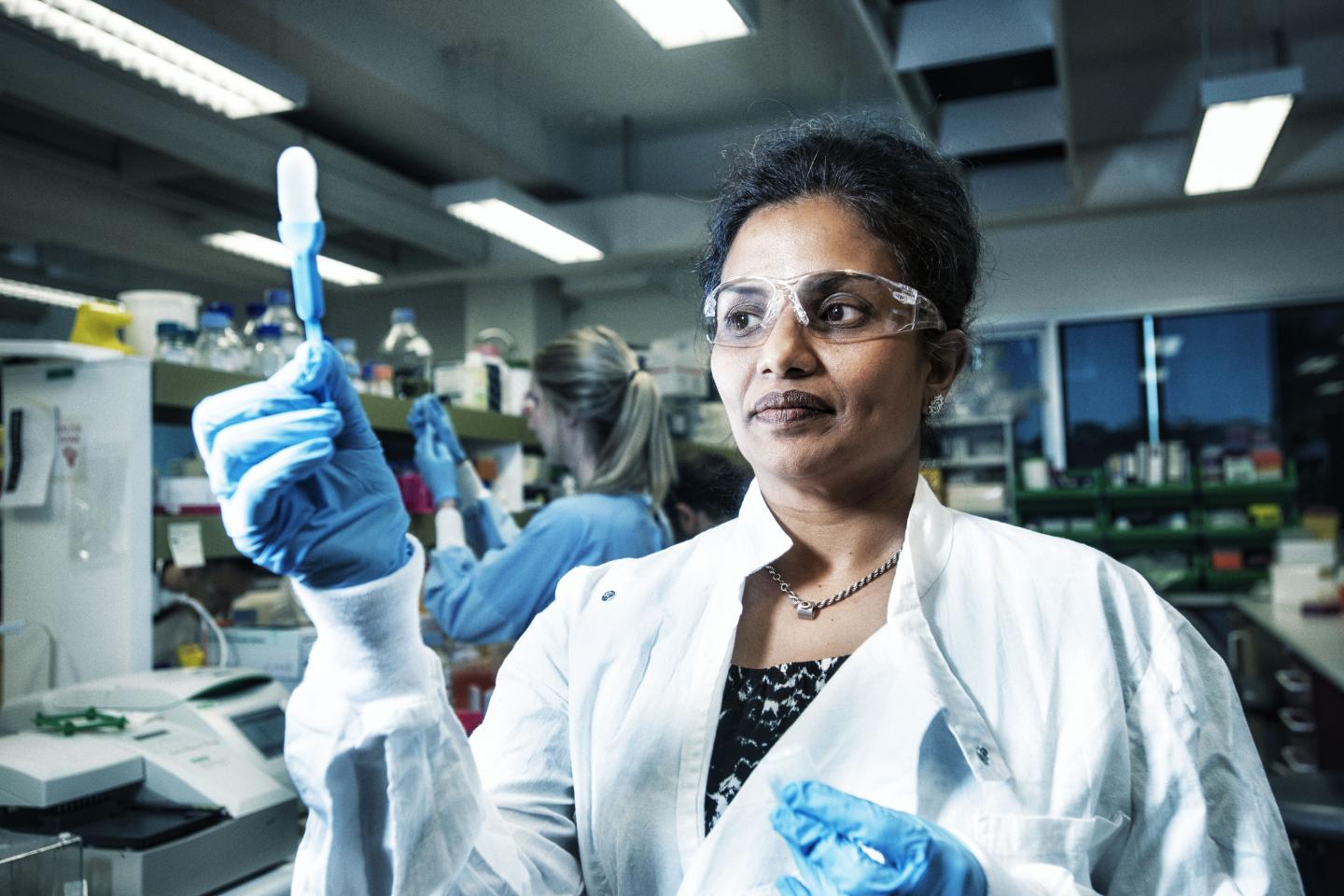
Credit: Erika Fish, QUT
This follows the extension of a QUT collaboration with Johnson & Johnson Innovation, Janssen Vaccines & Prevention, and Janssen Cilag Pty Ltd.
Professor Chamindie Punyadeera from QUT's Institute of Health and Biomedical Innovation (IHBI) said with the development of new therapeutic vaccines, it is important to identify in the general population those who should receive vaccine treatment.
"Identifying people at risk in an early stage of HPV-induced throat cancer will help to prevent progression to advanced cancer," Professor Punyadeera said.
"Highly sensitive, saliva-based diagnostics offer the possibility to detect HPV infections in a low-cost, non-invasive manner.
"New therapeutic vaccines hold the promise of having an immediate effects on the prevalence of HPV-associated malignancies."
Professor Punyadeera said HPV throat cancers have proven to be harder to identify than those caused by smoking.
She said new technology aims to identify people who are at risk for throat cancers and intercept the disease before symptoms such as throat pain, difficulty in swallowing or lumps in the neck or throat occur.
"That way diagnosis and early treatments can begin before invasive treatments are needed."
She said her research to develop a diagnostic saliva rinse test could see early stages of throat cancer detected by general practitioners, oncologists and dentists.
"We expect a simple non-invasive saliva sample will be sent to a lab or tested on site to determine if a patient requires further investigation."
"Ultimately we hope to develop a test that would enable home-testing and monitoring by patients," Professor Punyadeera said.
###
Media contact: Rose Trapnell, QUT media team leader, 61-7-3138-2361, 0407-585-901, [email protected] or [email protected]
Media Contact
Rose Trapnell
[email protected]
61-407-585-901
@qutmedia
http://www.qut.edu.au
Original Source
https://www.qut.edu.au/news?id=126283





